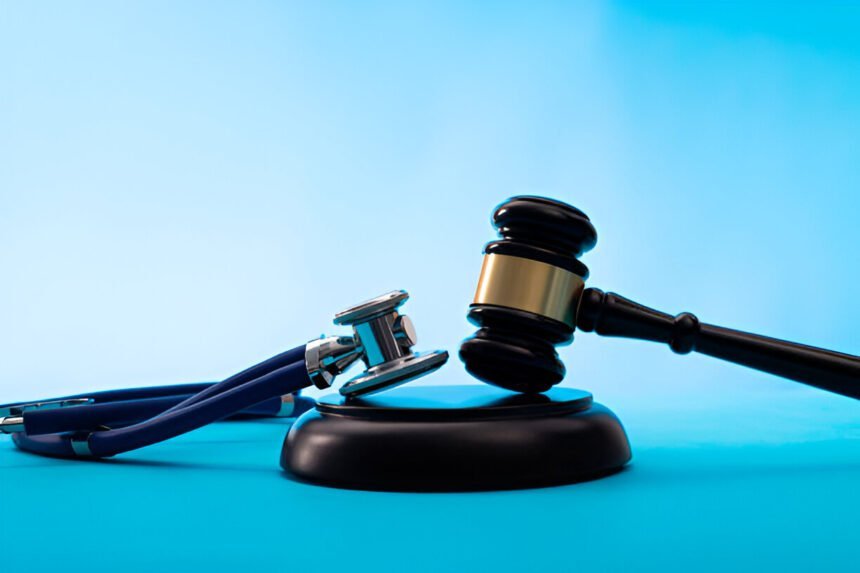As a healthcare provider, you have the responsibility to study, diagnose, treat, and prevent human illness and injury. The role played in the health needs of the population you serve depends largely on your specialty.
However, it is not unusual for some healthcare providers to get themselves involved in healthcare fraud by engaging in certain activities to receive unlawful benefits or payments.
Since such actions affect many people and result in the loss of billions of dollars yearly, they are franked against by the government. Your patient or organization may, on behalf of the government, sue you for healthcare fraud, and if found guilty, it can result in a jail sentence and seizure of your assets, among other stiff penalties.
If you ever find yourself a victim of any government investigation alleging healthcare fraud, you will need a healthcare fraud defense lawyer to protect your legal rights and fight for your innocence immediately.
Understanding healthcare fraud
Healthcare fraud is the intentional deception or misrepresentation of facts for unfair or unlawful financial gain or to deprive a victim of a legal right within the healthcare system. It is a crime that affects everyone, from patients to taxpayers.
The U.S. Department of Justice (DOJ) estimates the government loses over $100 billion annually to healthcare fraud ,in addition to undermining the quality of care provided to patients. It has become so significant that the DOJ established a Health Care Fraud Unit to address the problem.
Meanwhile, the Federal Bureau of Investigation (FBI) is the primary agency for investigating health care fraud for both federal and private insurance programs.
Common types of healthcare fraud
Healthcare fraud can be committed by both medical providers and patients. Some of the common types include:
Billing fraud
Billing fraud is a common healthcare fraud committed by healthcare providers. It is generally classified into four categories.
- Double billing: It involves submitting multiple claims for the same service.
- Phantom billing: Submitting claims for patients who do not exist or for services that were medically unnecessary.
- Unbundling: When a medical provider charges separately for services typically billed together.
- Upcoding: When the bill is more expensive than the service provided to the patient.
Identity theft and impersonation
This is commonly perpetrated by patients and other individuals. It usually involves deceiving people to get their health insurance identification number and other personal information to bill them for non-rendered services.
Using another person’s health insurance or allowing someone else to use yours can get you into health care fraud trouble.
Diversion
It is illegal to sell your prescription medication.
Doctor shopping
Visiting different medical offices to get prescriptions for controlled substances is considered a healthcare fraud. Likewise, patronizing any of such offices that engage in unethical practices.
Some of the biggest healthcare fraud cases
Even though there are federal agencies and departments dedicated to investigating and prosecuting healthcare fraud in the U.S., the qui tam, or whistleblower provisions, of the False Claims Act legally allow private citizens such as patients to file a health care fraud lawsuit on behalf of the government and share in any recovery obtained during the case.
The Act provides that people who commit healthcare fraud are liable for three times the total amount gained from such acts, in addition to a penalty linked to inflation.
Some notable cases in recent years include:
$2.5 billion ― 78 individuals charged for health care fraud
The DOJ, in a joint operation with federal and state law enforcement agencies, conducted a two-week nationwide action that resulted in criminal charges against 78 defendants who allegedly used proceeds from the crime to purchase luxury items, including exotic automobiles, jewelry, and yachts.
$600 million ― New York man sentenced to 12 years in prison for health care fraud
In February 2024, a New York man was sentenced to 12 years in prison for defrauding health insurance companies over $600 million. He was also ordered to pay over $336 million in restitution.
$40 million ― Doctors, pharmacists, and business owners charged in kickback scheme
The California Department of Insurance charged 21 doctors, one physician assistant, two pharmacists, and two business owners allegedly involved in $40 million fraudulent billing and kickback schemes.
They were linked to a kickback scheme orchestrated by Tanya and Christopher King, the owners of a practice management company called Monarch Medical Group and other related companies.
$33 million ― Pharmacy operators and a pharmacist charged for Medicare and TRICARE fraud
Two pharmacy executives and a pharmacist were charged by the DOJ for allegedly submitting fraudulent claims for unnecessary prescriptions, thereby defrauding Medicare and TRICARE to the tune of over $33 million.
What to do if sued for health care fraud
Being accused of healthcare fraud is an experience no medical provider wishes for. Unfortunately, it is very easy to get caught in the web of such allegations, and if not well handled, can result in criminal charges and damage to your professional and personal reputation.
Do not hesitate to hire a healthcare fraud defense lawyer and avoid speaking to law enforcement officers until you have consulted your lawyer.
Your lawyer will help you understand clearly the kind of healthcare fraud you are being accused of and what to do to avoid complicating your case.
Also, start gathering all records and documents that can help prove your innocence. This will make your lawyer’s job easier and help them better defend you.

